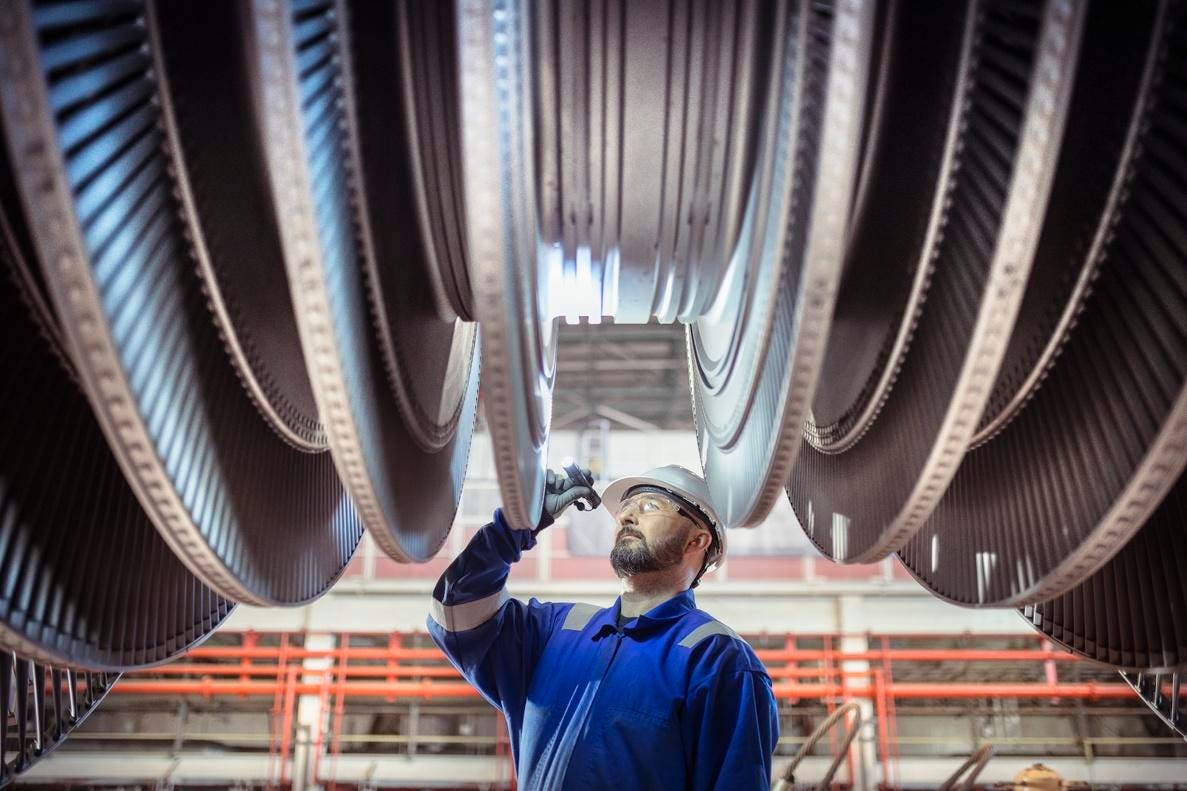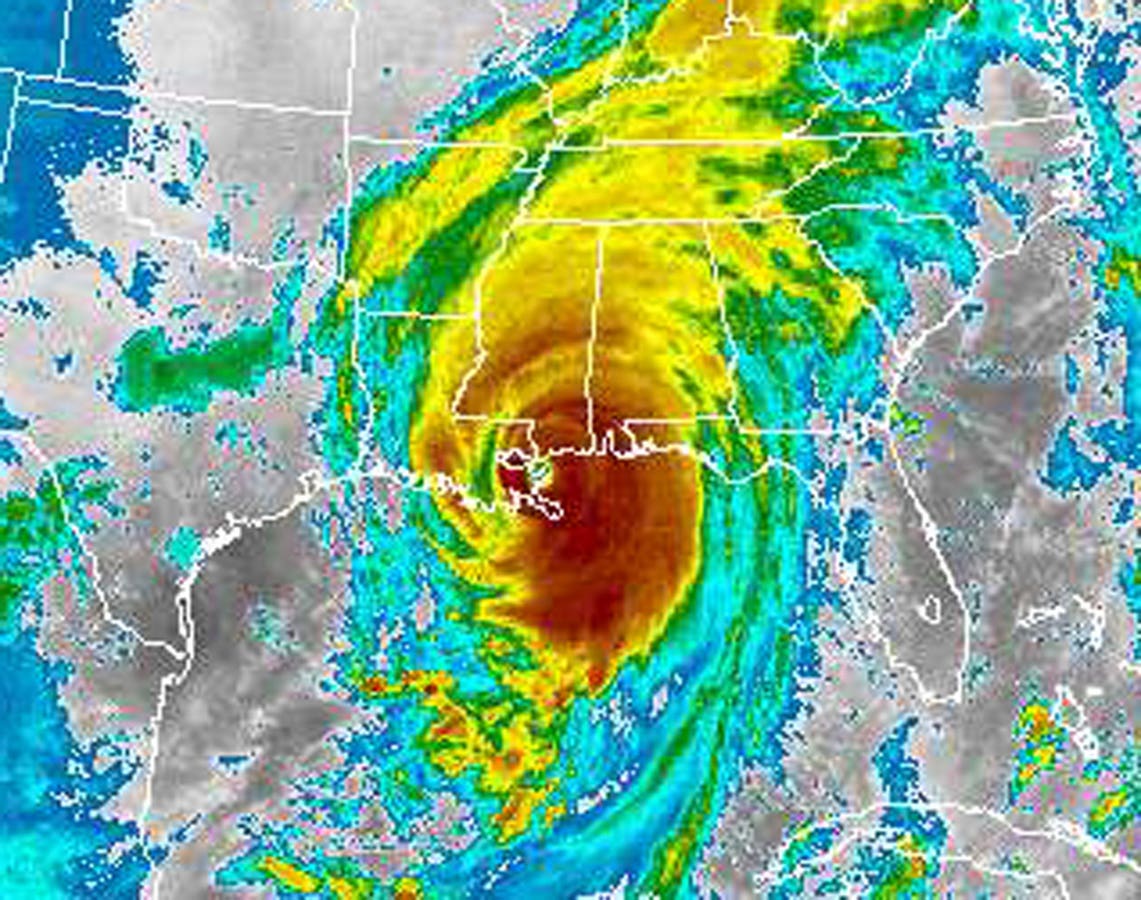Engineer inspecting a turbine in a nuclear power station.
getty
The U.S. Department of Energy is seeking U.S. companies in the nuclear fuel cycle and end-users to join a new nuclear fuel supply chain consortium to meet energy demand created by AI.
The DOE recently announced the creation of the new Defense Production Act Consortium. Its goal is to expand the domestic availability of nuclear fuel and cease relying on imports of enriched uranium and critical materials for nuclear power generation.
“There are major gaps in our nuclear fuel cycle infrastructure that leave the United States heavily dependent on foreign sources of enriched uranium,” Mike Goff, DOE acting assistant secretary, stated Aug. 22. “By leveraging authorities in the Defense Production Act, DOE is able to take swift action to bring all parties to the table to accelerate our path toward a more secure and independent energy future.”
The DOE stated it will use the DPA Consortium to enter into voluntary agreements with U.S. companies to create action plans “to ensure that the nuclear fuel supply chain capacity for mining and milling, conversion, enrichment, deconversion, fabrication, recycling and reprocessing is available to enable the continued reliable operation of the nation’s reactors.”
Membership in the DPA Consortium is free and open to any U.S. company working in the nuclear fuel cycle and end-users regardless of where the ultimate business owner is located with domestic nuclear energy companies.
The Office of Nuclear Energy will approve agreements. Priority will be given to companies that already have reached milestones to cooperatively procure low-enriched uranium (LEU) and high-assay low-enriched uranium (HALEU).
DOE has scheduled the first DPA Consortium meeting for Oct. 14. Interested companies should email [email protected].
Nuclear Power to Meet High Energy Demand from AI
Power lines in high voltage towers.
getty
A primary reason to increase the use of nuclear energy in the United States is to meet heightened electricity demand expected from AI.
In fact, projected energy demand increases from AI are forecast “to severely stress the electrical grid,” according to a Federal Register notice signed Aug. 20 by Energy Secretary Chris Wright.
The notice is called “Implementing Voluntary Agreements Under the Defense Production Act” and outlines the DOE reasons for establishing the new organization. It declares that the United States is facing multiple severe energy-related challenges “ultimately affecting national security and preparedness. These challenges include the global race to dominate in artificial intelligence, a growing need for energy independence, and the need for access to uninterruptible power supplies for national security.”
The DOE explains that a national revival in nuclear energy can provide electricity to feed a future U.S. electrical grid that will be struggling under greater load demands from AI and lower capacity due as power generators are retired. The agency pointed to its “Report on Evaluating U.S. Grid Reliability and Security” released July 7.
The report noted that 104 gigawatts of firm electricity generation is expected to retire by 2030. By then the nation is forecast to be facing a huge spike in power outages if sufficient new energy is not released into the U.S. electric grid.
“Modeling shows annual outage hours could increase from single digits today to more than 800 hours per year. Such a surge would leave millions of households and businesses vulnerable,” according to the report.
NYC electricity grid layout at night.
getty
The DOE noted there is an urgent need to find reliable power sources, especially to produce enough electricity to feed AI data centers while ensuring the national grid remains reliable.
Increasing nuclear power generation is seen as a national priority for domestic energy projection. Yet, the DOE says in the federal register notice that the U.S. “nuclear fuel cycle infrastructure has severely atrophied, leaving the nation heavily dependent on foreign sources of uranium as well as for uranium enrichment and conversion services.”
Thus, the DPA Consortium would enable private industry to contribute to getting more nuclear energy in national energy mix.









